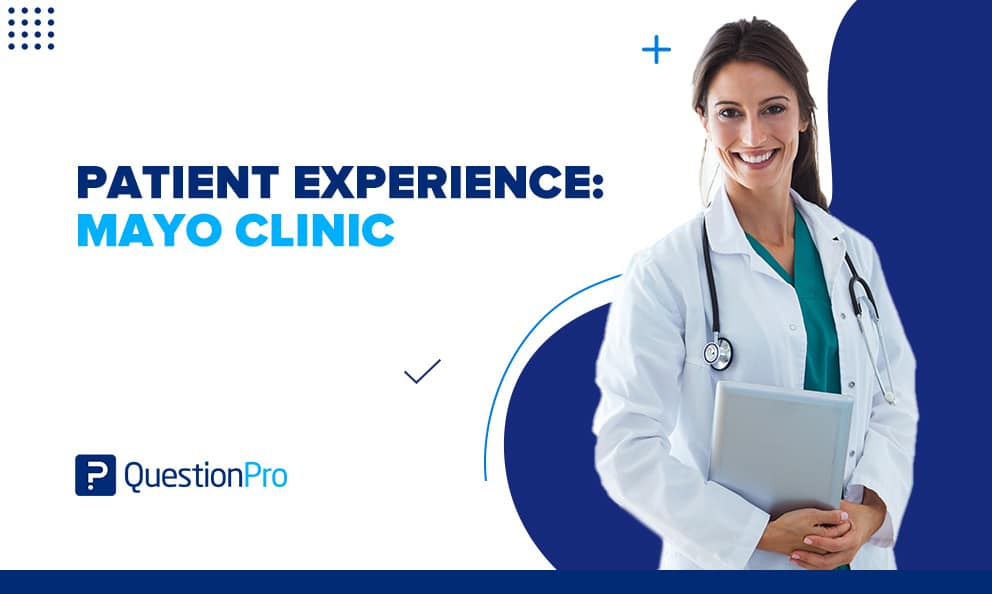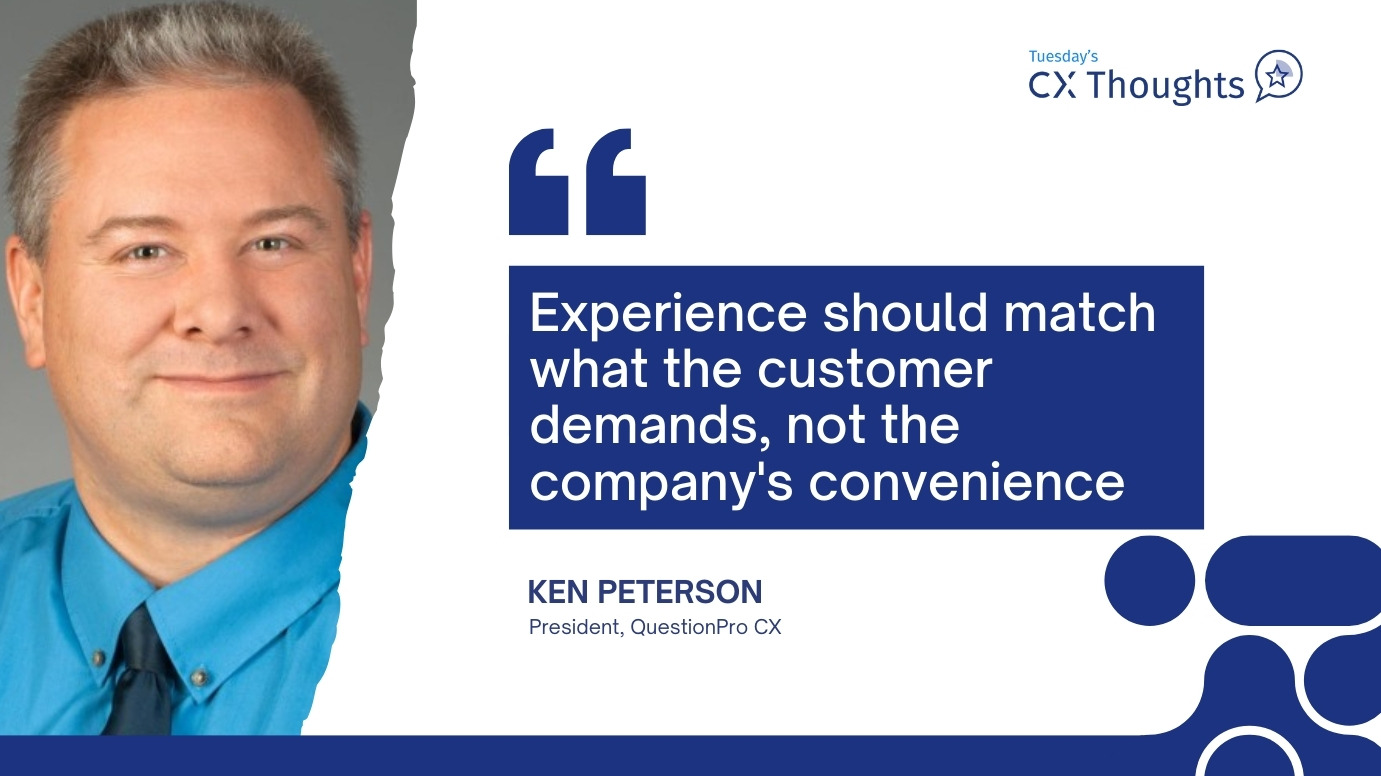
The experience offered to clients or users of our services has always been one of the key points to consider in ensuring the success of businesses. In the healthcare industry, this is no exception. Therefore, in today’s article, we will analyze the Patient Journey Map of Mayo Clinic to understand the most valuable touchpoints in this interaction and explore some ideas that can be applied in other industries.
Why is Patient Experience so important?
Before delving into Mayo Clinic’s patient journey, it is crucial to understand the importance of patient experience and its impact on other aspects of any healthcare institution.
The Patient Journey comprises various touchpoints where patients interact with their healthcare providers. These touchpoints are divided into different stages, depending on the stage of the patient-provider relationship.
Evaluating and understanding each of these touchpoints plays a significant role in identifying areas of improvement and opportunities to delight our users. This can lead to many benefits, such as increased satisfaction, word-of-mouth recommendations, a good reputation, enhanced online presence, and loyal customers.
QuestionPro recently published a blog about Patient Experience Software. Explore to learn more!
Example of a Patient Experience: Mayo Clinic’s Patient Journey Map
To provide you with a clear example, we have created the Patient Journey of Mayo Clinic, one of the top healthcare providers in the country. Mayo Clinic is characterized by its focus on patient satisfaction and its extensive technical deployment to gather user and prospect feedback.
Stage 01: AWARENESS
| Touchpoint | Customer Activity | Pain Point | Solution |
| Online Search and Website | Searching for healthcare options and visiting the Mayo Clinic website | Difficulty finding specific information | Improve website navigation and provide comprehensive information |
| Referral by Healthcare Provider | Receiving a referral from a healthcare provider | Uncertainty about the best course of action | Provide clear and timely communication about the referral |
| Word of Mouth | Recommendations from friends or family | Lack of knowledge about available services | Enhance word-of-mouth communication and offer informational resources |
| Social Media and Reviews | Checking social media and reading reviews | Concerns about the quality of care and experiences | Engage with patients on social media and respond to reviews |
Stage 02: CONSIDERATION
| Touchpoint | Customer Activity | Pain Point | Solution |
| Pre-Visit Communication | Interacting with Mayo Clinic through phone or email | Delayed or inadequate responses to inquiries | Improve response times and ensure comprehensive information |
| Appointments | Scheduling appointments with physicians | Difficulty finding suitable appointment times | Implement online appointment scheduling and offer flexible options |
| Patient & Visitor Guide | Reviewing the patient and visitor guide | Lack of information about hospital procedures and policies | Provide a comprehensive and accessible patient and visitor guide |
| Doctors & Medical Staff | Researching information about Mayo Clinic doctors | Limited availability of medical staff information | Showcase medical staff expertise and provide detailed profiles |
Stage 03: CONVERSION
| Touchpoint | Customer Activity | Pain Point | Solution |
| Registration and Check-in | Checking in for Mayo Clinic visits | Long wait times and confusing check-in process | Streamline registration and check-in procedures |
| Room Cleanliness | Evaluating room cleanliness during hospital stay | Concerns about hygiene and cleanliness of rooms | Ensure rigorous room cleaning protocols and maintain high standards |
| Patient-Centered Consultations | Meeting with healthcare providers for consultations | Feeling rushed during consultations | Prioritize patient-centered care and allocate adequate time |
| Informed Decision-Making | Understanding treatment options and decisions | Confusing medical jargon and lack of clarity | Improve patient education and communication of treatment plans |
| Insurance and Billing | Understanding insurance coverage and billing | Complexity in understanding insurance and costs | Provide clear and patient-friendly financial guidance |
Stage 04: LOYALTY
| Touchpoint | Customer Activity | Pain Point | Solution |
| HCAHPS Survey | Participating in the HCAHPS survey | Uncertainty about the survey’s impact and benefits | Communicate the importance of patient feedback and survey results |
| Compassionate Care | Receiving empathetic and compassionate care | Feeling devalued or dismissed during interactions | Train staff in empathy and compassionate communication |
| Communication and Follow-up | Receiving clear communication and timely follow-up | Lack of communication or follow-up after discharge | Improve post-discharge communication and follow-up protocols |
| Patient Online Services | Utilizing patient online services and resources | Limited awareness of available online services | Promote available patient online services and resources |
Stage 05: ADVOCACY
| Touchpoint | Customer Activity | Pain Point | Solution |
| Patient Feedback and Surveys | Providing feedback and participating in surveys | Lack of follow-up or action based on feedback | Actively respond to patient feedback and make improvements |
| Social Media Sharing | Sharing positive experiences on social media | Concerns about privacy and negative feedback | Provide social media guidelines and monitor brand mentions |
| Clinical Trials | Participating in clinical trials | Limited information about available clinical trials | Enhance communication about clinical trial opportunities |
| Your story of gratitude | Sharing gratitude stories and study cases | Limited awareness of the impact of gratitude stories | Highlight and share impactful stories of gratitude and healing |
| Office of Patient Experience | Engaging with the Office of Patient Experience | Limited engagement and lack of awareness about the office | Promote the Office of Patient Experience and its services |
Some interesting points and ideas from this example are:
Your Story of Gratitude: Mayo Clinic uses a simple questionnaire to request that patients share their success stories with others, allowing them to share their experiences and achievements during their treatment.
Mayo Clinic Office of Patient Experience: Due to its size and focus, Mayo Clinic has a dedicated office focused on evaluating and improving the patient experience. This has led to great ideas and initiatives to keep their patients and users satisfied.
Appointments: Mayo Clinic goes above and beyond to reduce stress when scheduling appointments by offering a wide range of communication channels to facilitate the process. They even differentiate between new and returning customers, providing the latter with an account to further streamline the process.
Feedback Survey: Surveys are the primary method for collecting information on various touchpoints. Mayo Clinic uses this methodology to gather user feedback and to better understand their perceptions and sentiments.
Start Improving Your Patient Journey
At QuestionPro, we have developed a series of tools to help you evaluate and improve patient satisfaction.
You can opt for our powerful Customer Experience Management Platform, which allows you to assess each point of interaction, schedule surveys, raise tickets, and measure the NPS of your institution.
If you want to visualize your patient journey, we also offer Suite CX. This customer journey mapping tool enables you to professionally and easily create your journey map professionally and easily, identifying each touchpoint of your customer’s journey.







